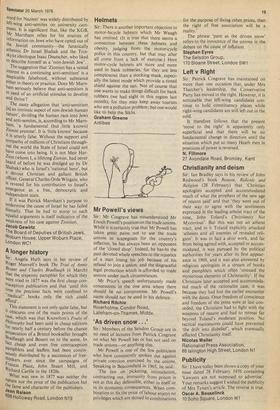Christianity and deism
Sir: Ian Bradley says in his review of John Redwood's book Reason, Ridicule and Religion (28 February) that 'Christian apologists accepted and accommodated much of what the prophets of the new age of reason said' and that 'they went out of their way to agree with the sentiments expressed in the leading atheist tract of the time, John Toland's Christianity Not Mysterious'. But this was not an atheist tract, and in it Toland explicitly attacked 'atheists and all enemies of revealed religion'. It was in fact a deist work, and far from being agreed with, accepted or accommodated, it was pursued by the political authorities for years after its first appearance in 1969, and it was also answered by religious apologists in a stream of books and pamphlets which often 'stressed the mysterious elements of Christianity'. If the Christians later accepted and accommodated much of the rationalist case, it was because they had lost the earlier encounter with the deists. Once freedom of conscience and freedom of the press were at last conceded, the Christians had to fight with the weapons of reason and had to retreat far beyond Toland's moderate position. No tactical manoeuvres could have prevented 'the drift into disbelief', which eventually affected Christianity itself.
Nicolas Walter Rationalist Press Association, 88 Islington High Street, London Ni


































 Previous page
Previous page